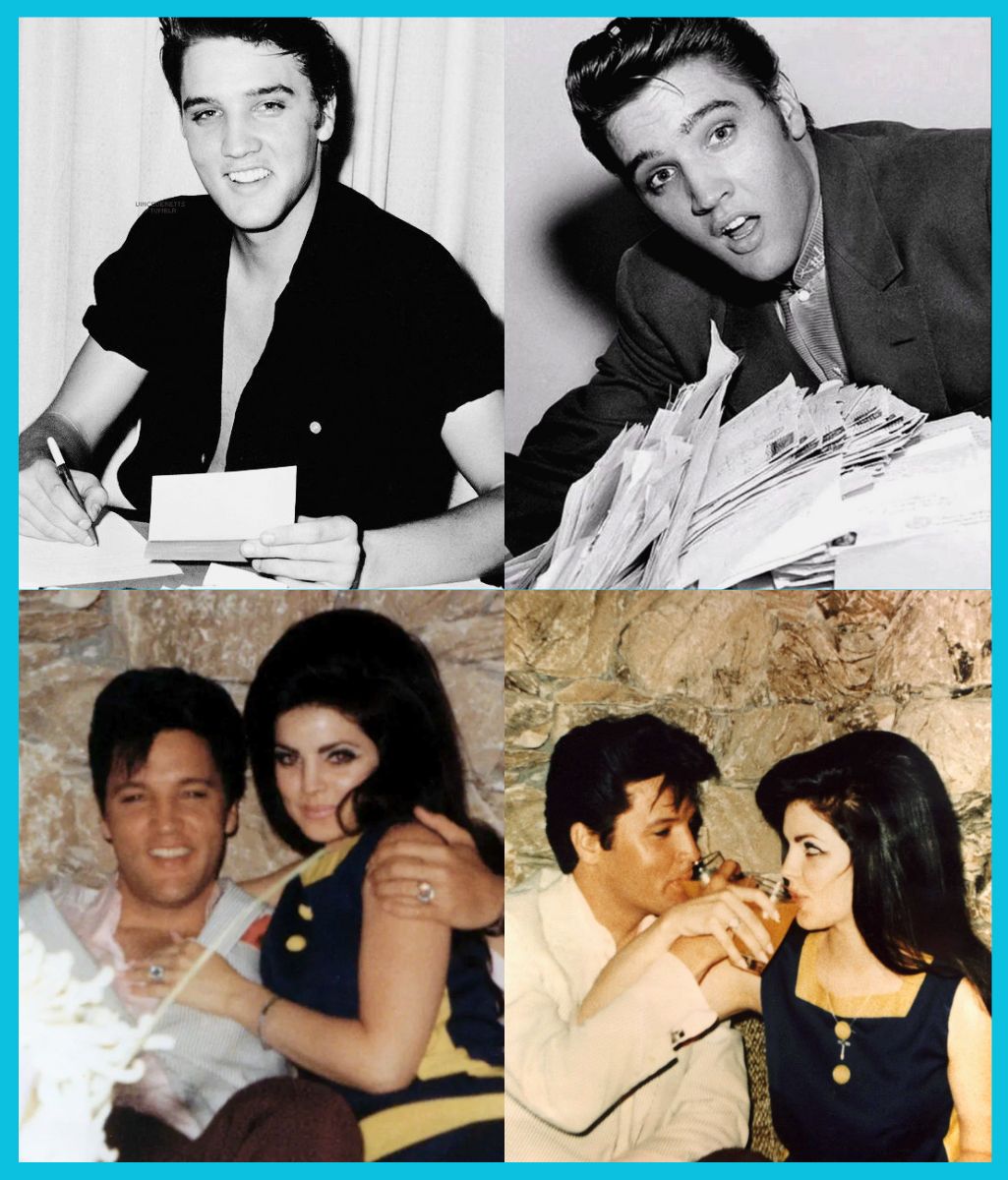
HEARTBREAKING REVELATION: The Lost Love Letters of Elvis Presley — “She Was the Only One Who Saw Him as Human”
Tupelo, Mississippi — Long before the screaming crowds, the flashing cameras, and the thunderous chords of “Hound Dog”, Elvis Presley was just a soft-spoken young man sitting in a small bedroom, pen in hand, trying to make sense of the feelings that filled his heart. The year was 1952, and the world had not yet met the King of Rock ’n’ Roll. He was simply Elvis, a dreamer from Tupelo — poor in possessions but rich in hope.
Now, more than seventy years later, a remarkable discovery has sent waves of emotion through the Presley world: a series of handwritten love letters, believed to have been written by a teenage Elvis to a girl from his hometown — a girl who knew him not as a legend, but as a lonely boy with a borrowed guitar and big dreams.
Historians say the letters were found carefully folded inside an old tin box that once belonged to the woman’s family. Each page, faded with time and handled with care, offers a window into Elvis’s heart long before fame transformed him. In these fragile notes, he signed his name with the same bold flourish that would one day appear on record covers — but the words themselves were disarmingly vulnerable.
Over and over, one phrase appeared — “I’ll never forget you.”
According to music historian Dr. Samuel Jennings, who helped authenticate the letters, the discovery sheds new light on the emotional depth of the young Presley. “We’ve always known Elvis had soul,” Jennings explained, “but this shows where that soul came from. These aren’t the words of a superstar. They’re the words of a boy learning how to love — and how to lose.”
The woman’s name has been withheld at the request of her family, but local archives confirm she attended Milam Junior High with Elvis in the early 1950s. Friends remember her as quiet and kind — someone who “kept to herself but smiled when he walked by.” She would later move away before Elvis’s career took off, leaving behind a young man whose life was about to change forever.
What makes these letters so extraordinary isn’t their fame, but their tenderness. In one note, Elvis writes about singing to her on a porch after school, promising that “one day I’ll sing you a song the whole world can hear.” Another mentions his mother, Gladys Presley, and how much he wanted to make her proud. “If I ever make it big,” he wrote, “I’ll buy Mama a house — and I’ll send for you, too.”
That haunting mixture of ambition and innocence runs through every line. It’s the voice of a boy standing at the edge of destiny, unaware that his words — and his songs — would one day echo around the globe.
“She was the only one who saw him as human,” one historian reflected. “Before the fame, before the heartbreak, before Graceland — she saw the real Elvis. The rest of the world met the legend.”
For fans, these letters are more than artifacts; they are reminders that even icons begin as ordinary people — with fragile hearts and handwritten dreams. As one page gently reads, in Elvis’s unmistakable script:
“Maybe someday, when I’m far away, you’ll still think of me when you hear a song.”
And now, decades later, as those words resurface in Tupelo, it feels as if Elvis Presley — the man, not the myth — is reaching out once more from the past, whispering through time the same three words he wrote again and again:
“I’ll never forget you.”
